Getting It Right — and Wrong — on Film
 The film spares no trick in getting the celebratory atmosphere just so — for the court is alive with news that an entire treasure fleet of the hated Spaniards has been captured, the funds diverted to her majesty’s treasury, the ships scuttled or pressed into privateering service for the Crown. Elizabeth herself blushes in anticipation of receiving the hero of the hour, the man whose name is on every tongue (and has been for quite some time, truth be told), Vice Admiral Sir Francis Drake. The tension builds, the courtiers grow restless, the lavish entertainments are ignored. All necks stretch, even the alabaster column of the monarch’s herself, when the herald announces the great man’s arrival and the doors swing open.
The film spares no trick in getting the celebratory atmosphere just so — for the court is alive with news that an entire treasure fleet of the hated Spaniards has been captured, the funds diverted to her majesty’s treasury, the ships scuttled or pressed into privateering service for the Crown. Elizabeth herself blushes in anticipation of receiving the hero of the hour, the man whose name is on every tongue (and has been for quite some time, truth be told), Vice Admiral Sir Francis Drake. The tension builds, the courtiers grow restless, the lavish entertainments are ignored. All necks stretch, even the alabaster column of the monarch’s herself, when the herald announces the great man’s arrival and the doors swing open.
Francis Drake strides confidently forward in ripped jeans, bowling t-shirt, and backwards pointing baseball cap.
 I had been reading science fiction for four or five years before I actually ran across any of the science fiction magazines. I was aware that they existed, and was extremely interested in reading them, but never saw them in bookstores. I now attribute this to the fact that bookstores generally put genre magazines with the magazines and not with the books (where I had been looking for them), and also to the fact that I wasn’t super-bright.
I had been reading science fiction for four or five years before I actually ran across any of the science fiction magazines. I was aware that they existed, and was extremely interested in reading them, but never saw them in bookstores. I now attribute this to the fact that bookstores generally put genre magazines with the magazines and not with the books (where I had been looking for them), and also to the fact that I wasn’t super-bright.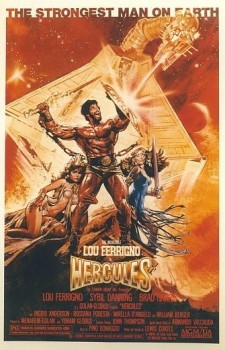 Hercules (1983)
Hercules (1983) Okay, I’ll admit that in a past indiscretion I went to an adult store (this was in the days before the Internet, when it was the only place you could get such things) and bought an anatomically correct blow up doll. But, it wasn’t for me. Honestly. It was a joke gift for a bachelor party. Nonetheless, I want to take this opportunity to apologize to my congregation, my constituents and my family for behavior that was actually perfectly innocent, though I realize it could be construed by some as some kind of perverted behavior by those who haven’t as yet been caught in their own perverted behavior.
Okay, I’ll admit that in a past indiscretion I went to an adult store (this was in the days before the Internet, when it was the only place you could get such things) and bought an anatomically correct blow up doll. But, it wasn’t for me. Honestly. It was a joke gift for a bachelor party. Nonetheless, I want to take this opportunity to apologize to my congregation, my constituents and my family for behavior that was actually perfectly innocent, though I realize it could be construed by some as some kind of perverted behavior by those who haven’t as yet been caught in their own perverted behavior.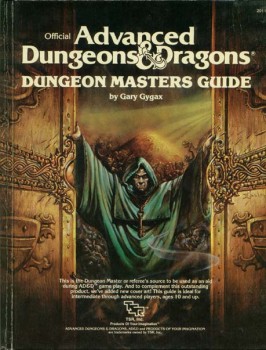 A
A 
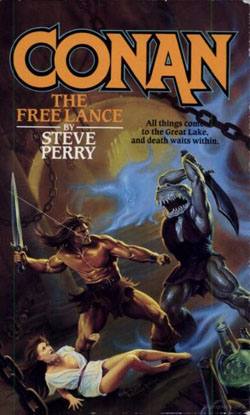
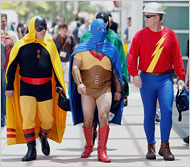 Courtesy of The New York Times comes this report of
Courtesy of The New York Times comes this report of 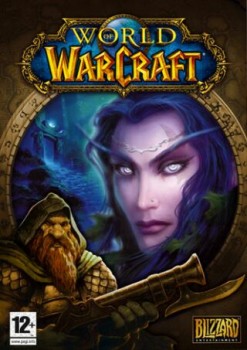 Come with me, if you will, to a magical, improbable land. A land where ideas and craft outweigh brand recognition and marketing potential, where films are the visions of writers and directors rather than of moneyed committees, and where the word ‘remake’ is most commonly associated with smoothing the bedsheets after a midday nap. It’s a place perhaps more fantastic than worlds of warring orcs and elves, since at least the orcs and elves are behaving according to their nature.
Come with me, if you will, to a magical, improbable land. A land where ideas and craft outweigh brand recognition and marketing potential, where films are the visions of writers and directors rather than of moneyed committees, and where the word ‘remake’ is most commonly associated with smoothing the bedsheets after a midday nap. It’s a place perhaps more fantastic than worlds of warring orcs and elves, since at least the orcs and elves are behaving according to their nature.